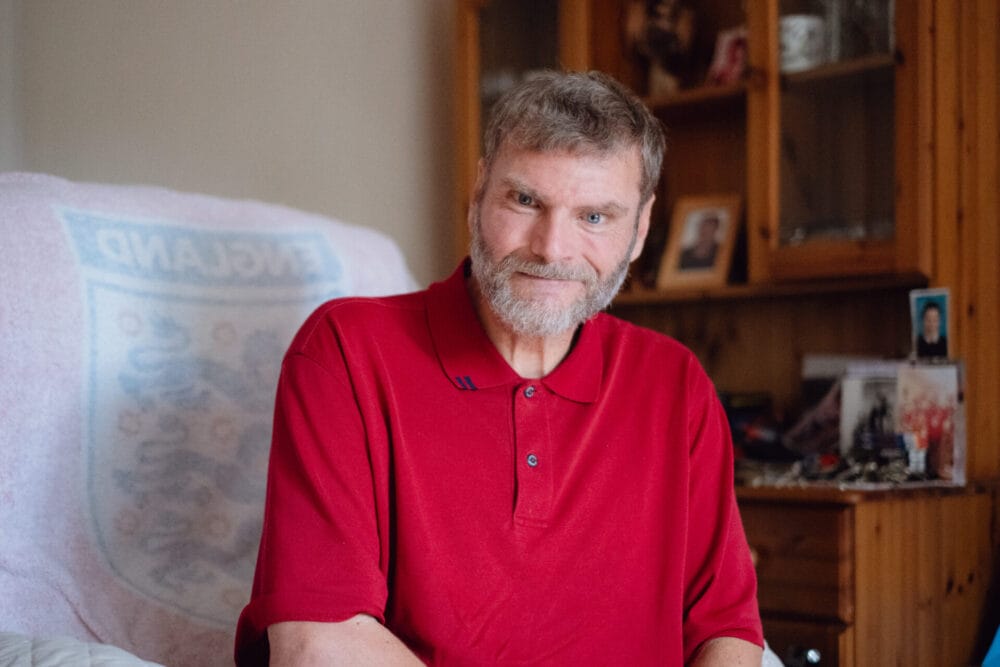On the morning of 31 July, 2021, Paul, a then 60-year-old resident of Wellington, was enjoying a typical day in his study when his life took a sudden and unexpected turn. At around 9am, Paul suffered a middle cerebral artery stroke, an event that would change his life forever.

In an instant, Paul found himself on the floor, disoriented and unaware of what had just occurred. Despite his efforts to call for help, he couldn’t produce any sound, though he believed he was shouting. The right side of his body was completely unresponsive, leaving him immobilised and confused. “For what felt like an eternity—20 to 30 minutes—I lay there helpless until my wife discovered me,” Paul recalls. With the assistance of their daughter, she managed to help him up and immediately called an ambulance.
Paul was rushed to Southmead Hospital in Bristol, where doctors performed an emergency thrombectomy to remove the blood clot from his brain. After spending a week in Southmead, Paul was transferred to Musgrove Hospital in Taunton for further care, followed by a stay at Williton Stroke Hospital. There, he received exceptional stroke-related care and physiotherapy, crucial to his recovery.
Returning home on 1 November, 2021, was a bittersweet moment for Paul. While he was relieved to be back in familiar surroundings, he was also filled with anxiety about his future. “I was scared about my future and worried about becoming a burden on my family,” he admits. At the time, Paul weighed 149 kg and struggled with basic tasks such as walking, climbing stairs, and even showering, which he had to do using a bath board.
Paul’s journey to recovery was anything but easy. However, with the help of home physiotherapy over the next 6 to 8 months, he began to rebuild his life. He relearned how to walk, climb stairs, and gradually regained his independence. “Through sheer determination and the guidance of my physiotherapists, I transformed my life,” Paul says.

A year after his stroke, Paul’s hard work paid off. He had lost nearly half his body weight, dropping to 83 kg. His physiotherapist also helped him join a local gym through a GP referral scheme, and Paul has been attending regularly, 3 to 4 times a week, for the past two years. Remarkably, he is now driving again, thanks to a specially adapted car that he can operate using only his left hand and left foot.
Reflecting on the events leading up to his stroke, Paul acknowledges that he had no prior warning signs or symptoms. “I hadn’t had my blood pressure checked in years, though I knew it had been high when I was younger. I thought, ‘ignorance is bliss’,” Paul admits. Looking back, he realises that he didn’t fully understand the devastating impact high blood pressure could have until it was too late.
Throughout his recovery, the support of his family, friends, and healthcare providers has been invaluable, but it was the physiotherapists who made the biggest impact on his mobility. “Without their expertise and encouragement, I believe I would still be confined to a wheelchair today,” Paul reflects.
Life has changed dramatically for Paul since his stroke. Before that day, he was an avid golfer with a handicap of 6 and a passionate motorbike enthusiast. He owned and rode five classic bikes, belonged to four bike groups, and even won trophies at bike meets. Now, he chuckles at the irony of riding a 4-mph electric wheelchair on his way to the gym, remembering the days when he raced bikes capable of over 180 mph.
Paul’s message to others is clear: “Please, please, please get your blood pressure checked regularly, even if you feel fine. It could save your life and spare you and your loved ones from a lot of tears and hard work.” His story is a strong reminder of the importance of taking care of our health. “Don’t wait until it’s too late to take control of your health,” Paul warns.

